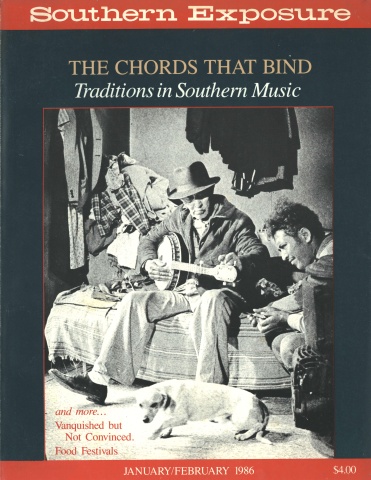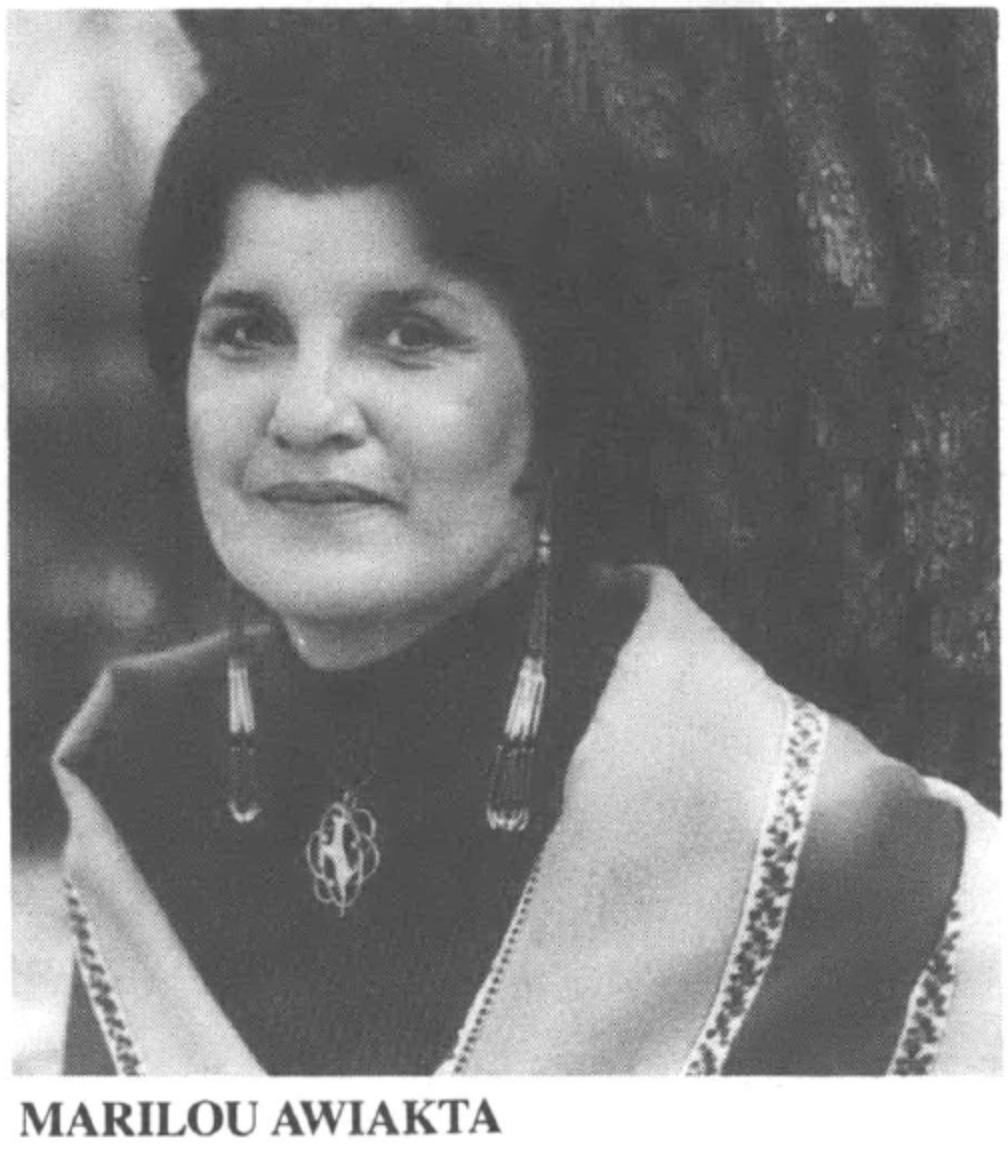
This article originally appeared in Southern Exposure Vol. 14 No. 1, "The Chords That Bind." Find more from that issue here.
When the United States Information Agency sent out "Women in the Contemporary World" exhibit in January 1985 for a two-year global tour, Cherokee/Appalachian writer and poet Marilou Awiakta was little known beyond the American South. As the exhibit of creative works by American women circulates through cultural centers and universities in London, Copenhagen, Madrid, Jerusalem, Calcutta, Nairobi, and other major cities, she is gaining the attention she deserves. The Tennessee native's message is for peaceful uses of nuclear energy and for the holistic unity of mankind.
That message is reflected in her books — Abiding Appalachia: Where Mountain and Atom Meet and Rising Fawn and the Fire Mystery — as well as in articles featured in Ms. and Southern Exposure magazines and in the anthologies, A Gathering of Spirit (Sinister Wisdom Books) and In Search of Our Mothers' Gardens (Harcourt Brace Jovanovich).
"While living in Laon, France, in the mid-1960s, I worked as an English-French interpreter during the NATO withdrawal. I learned two major truths," Awiakta reflects. "One truth is that Machiavelli remains the prince of politics and the rules of power haven't changed since he wrote about them in the sixteenth century. The other truth is that the Native American concept of humanity and nature being interconnected must become an integral part of contemporary living.
"One of the Cherokee contributions to the world is to promote an awareness of our ancient holistic philosophy — in practice 25,000 years — and thus help develop a new sensitivity in dealing with nuclear energy," she says quietly. "Albert Einstein pointed out that 'we need to change our mode of thought to cope with the atom,' and his admonition is particularly crucial today. The proliferation of nuclear weapons, reactors, and waste sites is an alarming example of modern civilization's emphasis on dominance and disregard for humanity and environment."
Marilou Awiakta's respect for nuclear power was nurtured in childhood. She grew up on the atomic frontier in Oak Ridge, Tennessee, where her father was one of the 100,000 people engaged in the intensive, top-secret program called the Manhattan Project. Oak Ridge was a closely guarded city clustered along the wooded ridges of east Tennessee, and the world outside knew nothing of nuclear energy — until August 6, 1945, the day the first atomic bomb, a product of the Manhattan Project, was dropped on Hiroshima.
"A concrete fact is that we have split the atom, so we must exercise careful stewardship with what we have wrought," she observes. "We must use the atom for peaceful, helpful purposes instead of for death and destruction. Powerful and good uses of atomic energy are found in cancer treatment, for example. Cancer patients are treated with atomic byproducts that came from the same reactor that made the bomb which ended World War II.
"But we must never reach the point where we think we know the secrets of the universal atom," she adds. "There are still many, many things beyond the realm of human comprehension and sophistication. One example is the potency of nuclear waste. News stories appear daily relating to victims of the scientific community's underestimation of buried nuclear waste; the underground waste pollutes the earth and water, moves into the food chain, and poisons people. We did not foresee the dangers of nuclear energy because a holistic attitude was not used in developing it."
Awiakta observes that the trend in contemporary cultures to polarize issues into two opposing sides is harmful to world civilization. This polarization, she feels, creates a void in the "middle," where a central position should be viable. The need for this central role calls for application of the Native American holistic concept, where all components are part of the whole.
"People ask whether I am pro- or anti-nuclear," she comments. "My answer is that I am pro-reverence, pro-integrity. The atom is here and we have to cope with it. What happens depends directly upon the character of the people involved. If reverence and responsibility prevail, we will use the atom for good. If money and power are the bottom line and human safety is ignored, then, as Albert Einstein predicted, we will have 'unparalleled catastrophe.' We still have a choice, but time is running out."
In Abiding Appalachia: Where Mountain and Atom Meet, Awiakta writes, "Long before I learned the universal turn of atoms, I heard the spirit's song that binds us all as one." That recurrent theme appears in all her work, including her frequent lectures and readings to schools and organizations. As exposure to this poet's message widens and crosses cultural barriers, more and more will be heard of Marilou Awiakta.
Tags
Ilene J. Cornwell
Ilene Cornwell married into the Cornwell family and met Josie Redden through her in-laws. Cornwell is a Nashville writer who has written a guide to Mississippi's Natchez Trace Parkway. (1986)

